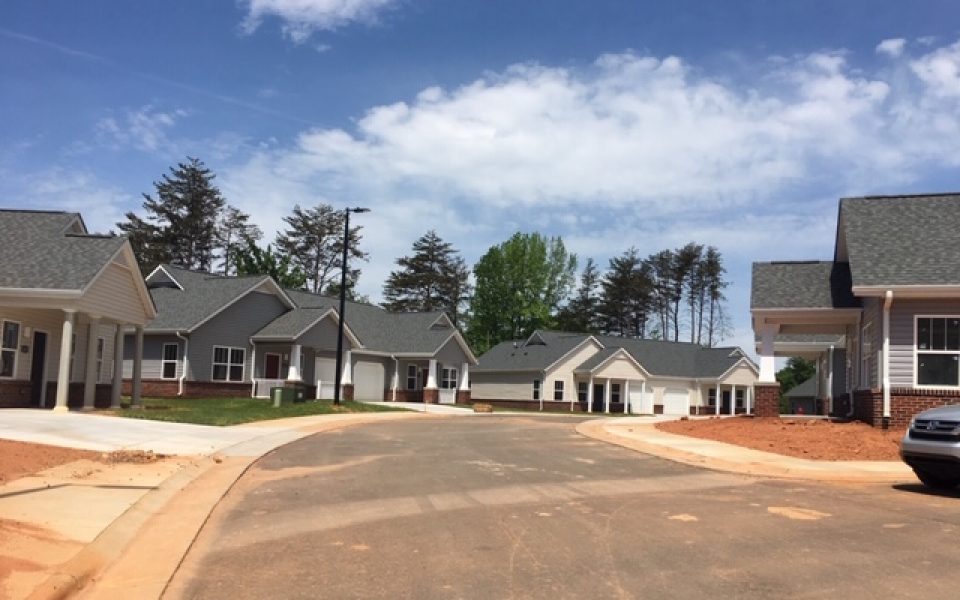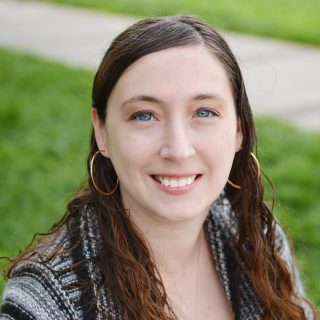Featured photo: The goal of the Emmanuel Retirement Village, envisioned by Ujima, is to provide affordable housing and a gated community to senior citizens in East Winston-Salem. (courtesy photo)
During the Feb. 7 Winston-Salem city council meeting, members unanimously approved a request to replace a community center in the Emmanuel Retirement Village with two additional residential units instead.
Emmanuel Retirement Village is located at 1687 Village Meadow Circle, off Barbara Jane Avenue, in the East Ward of Winston-Salem. The property was originally donated to Emmanuel Baptist Church, located nearby at 1075 Shalimar Drive. The church then donated the property to Ujima Community Development Corporation, Inc., which is a faith and community-based nonprofit.
The goal of this development, envisioned by Ujima, is to provide affordable housing and a gated community to senior citizens in East Winston-Salem. According to the corporation, Emmanuel Retirement Village is the “first of its kind as an internally subsidized elderly independent living complex, in a predominately African-American neighborhood.”
While there are numerous assisted living facilities in Winston-Salem, there are few independent-living retirement villages — less than a dozen, most of which are located in predominately white neighborhoods. In the East Winston neighborhood and the surrounding area, Emmanuel Retirement Village is the only one of its kind.
According to a report provided by Senior Housing News, life plan communities’ independent living residents are 95 percent Caucasian, with 4 percent listed as Black and 1 percent listed as Asian. This disparity can be attributed to the historical inequity that has existed as a reality for many Black families in the United States.
“Black families have considerably less wealth than white families — a median net worth of $24,100 compared with $188,200,” according to Consumer Reports. Additionally, “Blacks are less likely to have retirement savings accounts, like 401(k)s or pensions, partly because they are less likely to work for an employer that offers them.”
Affordable housing for seniors is a major factor in the development of Emmanuel Retirement Village. Based on an online search of area apartment rates, the majority of independent living retirement villages in Winston-Salem start at approximately $2,000 a month. At Emmanuel Retirement Village, the costs range from $915 to $1,025 per month with utilities included. The average age range of residents leasing the units is 62-88, according to Ujima.
Ujima began the plans for its development of Emmanuel Retirement Village in 2013. The original plan included 50 units, a mix of two-bedroom duplexes and one-bedroom apartments, with a 3,440-square foot community center on the approximately 8.5 acres of land. The community center was meant to be an added amenity for residents of the retirement village and a recreational place for them to congregate but during the Feb. 7 city council meeting, members decided to change the plan to allow more space for two additional duplex units instead. Currently, 42 of the 50 units have been completed, with the eight remaining units still under construction. All 42 completed units have been leased and there is a wait list for both the duplexes and apartments.
As the community center has yet to be built, there will be no demolition.
According to the staff report, the proposed updated development plan would not pose any transportation-related issues in the area.
Council member Annette Scippio of the East Ward said she was very much in favor of this request during the meeting.
“The retirement center has made a great improvement on Barbara Jane Avenue,” Scippio said. “It looks wonderful. The developers just did not know what appeal those duplexes with garages would have.”
Based on an online search of area apartment rates, the majority of independent living retirement villages in Winston-Salem start at approximately $2,000 a month. At Emmanuel Retirement Village, the costs range from $915 to $1,025 per month with utilities included.
In April 2019, tenants began to move into the newly constructed units. Janet Johnson was the very first tenant to move in.
“The units are all brand-new and very nice,” Johnson said. “Plus, the neighborhood is quiet. Since it is gated, I feel very safe in this development. As residents we know the gates will remain shut between the hours of 5 p.m. and 8 a.m., unless we let someone in.”
Ujima sent out a mailer communicating to the current 42 residents, as well as two LLC’s and two churches in the surrounding area to notify them of the request to replace the proposed community center with two additional residential units.
Many of the tenants’, including Johnson, were in favor of the decision due to their desires to ensure a safe community given the ongoing threat of COVID-19. They said they felt a community center would lead to outsiders coming in to use the center.
“We all voted to remove the community center as we do not feel safe having people come in from outside the gates to utilize it,” Johnson said. “Plus, the developers plan to build an outdoor gazebo for us to have cook outs at which is much safer during these continued times of COVID.”
Scippio also pointed to other community centers where seniors could gather instead.
“There is still a space within one of the buildings where residents can gather,” she said. “Additionally, Winston Lake Park and the Winston Lake YMCA are in walking distance to the area or a short drive. Therefore, residents of this retirement village still have recreational options.”
At this time no timeline was given by Ujima Community Development Corporation on when the additional two units might be completed.
Join the First Amendment Society, a membership that goes directly to funding TCB‘s newsroom.
We believe that reporting can save the world.
The TCB First Amendment Society recognizes the vital role of a free, unfettered press with a bundling of local experiences designed to build community, and unique engagements with our newsroom that will help you understand, and shape, local journalism’s critical role in uplifting the people in our cities.
All revenue goes directly into the newsroom as reporters’ salaries and freelance commissions.


Leave a Reply